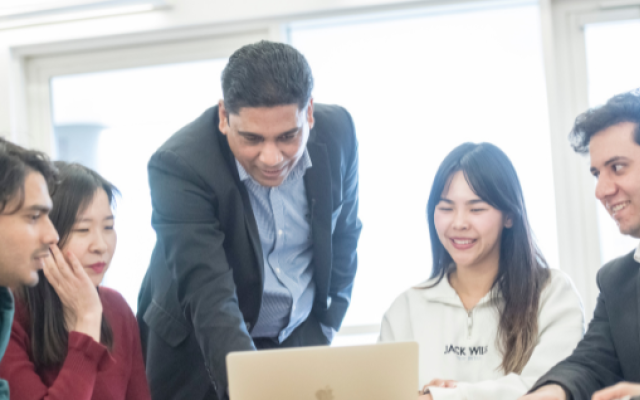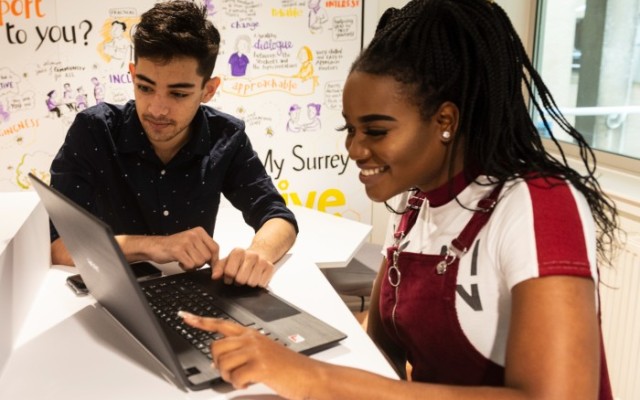2pm - 5pm
Thursday 1 October - Friday 2 October 2020
Conducting field research in methodologically challenging settings virtual workshop
We invite researchers at various career stages to reflect on their data gathering and analysis practices.
This event has passed
The deadline for registration is Thursday 20 August.
Overview
Grand challenges are difficult to solve societal problems that impact people globally (George et al, 2016).
They include poverty alleviation, balancing gender, ethnic and racial inequality, reversing biodiversity loss, adapting to climate change and, more recently, recovering from current health and economic crises. Although present in most societies, they are particularly prevalent in developing countries.
However, while research in impoverished regions may provide crucial insights for understanding grand challenges, there are major methodological constraints that may limit publication opportunities (Matos and Hall, 2020). This includes, but is not limited to, issues associated with illiteracy rates, language and cultural barriers, unreliable statistical data, corruption, lack of freedom of speech and unsafe or remote communities.
Mair et. al (2012) suggest that the majority of management research is conducted in developed countries, which is unencumbered by such constraints, and thus of limited relevance in underdeveloped regions. This workshop builds on these arguments by exploring the methodological constraints common in impoverished regions, which are typically ignored, trivialised, misrepresented or deemed methodologically weak by mainstream management journals.
Theme of the workshop
The theme of this workshop is to therefore develop rigorous methodologies in challenging settings for publication in leading journals.
Significant methodological difficulties related to data collection and analysis may rise from, for example, language and cultural barriers, questionnaire interpretation, unreliable statistical data, corruption and lack of freedom of speech (Halme et al., 2016). In practice, the work of a researcher is challenging due to safety issues (Whiteman and Cooper, 2016), gaining access to interesting cases and the necessity of working with gatekeeper organisations (Halme et al., 2016).
Further, are the theories of whether researchers are able to explain the phenomena one is studying in these different environments.
Don't forget to follow us on Twitter through @McsWorkshop.
On the day
The workshop will be a half day on both days to accommodate for the time zones the best way possible. Participants can join as authors of a paper or as regular attendees.
To allow for collaborative learning, we expect workshop participants to be willing to reflect on experiences and to share good practices of doing research in methodologically challenging settings.
Through joint discussions during the workshop, the key takeaway for participants will be “rigor without rigor mortis” (Eisenhardt et al, 2016) in challenging settings.
Speakers
The workshop will include keynote presentations from journal editors, roundtables on methodological issues and paper development working sessions. The following keynote speakers will be sharing their experiences on conducting field research in impoverished communities:
- Professor Charla Griffy-Brown (Editor-in-Chief, Technology in Society)
- Professor Wim Vanhaverbeke (Co-Editor-in-Chief, Technovation)
- Professor Pablo Munoz, (Associate Editor, Journal of Business Venturing Insights)
- Professor Madhu Viswanathan (Founder of Subsistence Marketplaces Initiative)
Also, in a dialogical session, Professor of International Business and leading qualitative research methods expert Rebecca Piekkari will discuss with one of the pioneers of low-income emerging markets researchers, Professor Minna Halme, how impoverished contexts challenge current conventions and templates of qualitative research.
Get in contact
If you have any questions then please email Marleen Wierenga.
If you were unable to attend the webinar, please watch the video below.
Conducting field research in methodologically challenging settings; virtual workshop
Organisers
- Dr Stelvia Matos (Surrey Business School, UK)
- Dr Marleen Wierenga (Aalto University School of Business, Finland)
- Dr Jeremy Hall (Science Policy Research Unit, University of Sussex Business School, UK)
- Dr Minna Halme (Aalto University School of Business, Finland)
- Dr Susana Carla Farias Pereira (Fundação Getulio Vargas, Brazil).
References
Branzei, O., & Abdelnour, S. (2010). Another day, another dollar: Enterprise resilience under terrorism in developing countries. Journal of International Business Studies, 41(5), 804– 825.
Eisenhardt, K. M., Graebner, M. E., & Sonenshein, S. (2016). Grand challenges and inductive methods: Rigor without rigor mortis. Academy of Management Journal, 59(4), 1113– 1123.
George, G., Howard-Grenville, J., Joshi, A., & Tihanyi, L. (2016). Understanding and tackling societal grand challenges through management research. Academy of Management Journal, 59(6), 1880–1895.
Hall, J., Matos, S., Sheehan, L., & Silvestre, B. (2012). Entrepreneurship and innovation at the base of the Pyramid: A recipe for inclusive growth or social exclusion? Journal of Management Studies, 49(4), 785–812.
Halme, M., Kourula, A., Lindeman, S., Kallio, G., Lima-Toivanen, M., & Korsunova, A.
(2016). Sustainability Innovation at the Base of the Pyramid through Multi-Sited Rapid Ethnography. Corporate Social Responsibility and Environmental Management, 23(2), 113–128.
Mair, J., Martí, I., & Ventresca, M. J. (2012). Building inclusive markets in rural Bangladesh: How intermediaries work institutional voids. Academy of Management Journal, 55(4), 819–850.
Matos, S., & Hall, J. K. (2020). An exploratory study of entrepreneurs in impoverished communities: when institutional factors and individual characteristics result in nonproductive entrepreneurship. Entrepreneurship & Regional Development, 32(1–2), 134– 155.
Ripple, W. J., Wolf, C., Newsome, T. M., Galetti, M., Alamgir, M., Crist, E., … Laurance, W. F. (2017). World scientists’ warning to humanity: A second notice. BioScience, 67(12), 1026–1028.
Whiteman, G., & Cooper, W. H. (2016). Decoupling Rape. Academy of Management Discoveries, 2(2), 115–154.
Stay connected
Latest tweets
@McsWorkshop







